

SUBSCRIBE TO OUR FREE NEWSLETTER
Daily news & progressive opinion—funded by the people, not the corporations—delivered straight to your inbox.
5
#000000
#FFFFFF
To donate by check, phone, or other method, see our More Ways to Give page.


Daily news & progressive opinion—funded by the people, not the corporations—delivered straight to your inbox.
On September 29th, Steve Jensen, a farmer in northwest North Dakota, discovered crude oil "spewing and bubbling 6 inches high" out on his field while he was harvesting wheat. The spewing oil came from a break in Tesoro Corporation's underground pipeline which carries crude oil from Bakken shale formation (fracking for oil) to Columbus, North Dakota. By the time clean up crews made it out to Jensen's field, over 20,000 barrels of oil had spilled, making this one of the largest spills in state history.
It took nearly two weeks after Jensen first reported the spill for the state to finally make the news public, and as you can see from the exclusive Greenpeace photos below, the damage is extensive.
North Dakota and Bakken have become coveted areas for oil executives bent on getting the most extreme and remote fossil fuels out of the ground now that the "easy" reserves are on the decline. As we saw in Mayflower, Arkansas earlier this year, pipelines spill, and so as long as we let oil companies keep us locked into these forms of extreme fossil fuels, we'll continue to see spills like these.
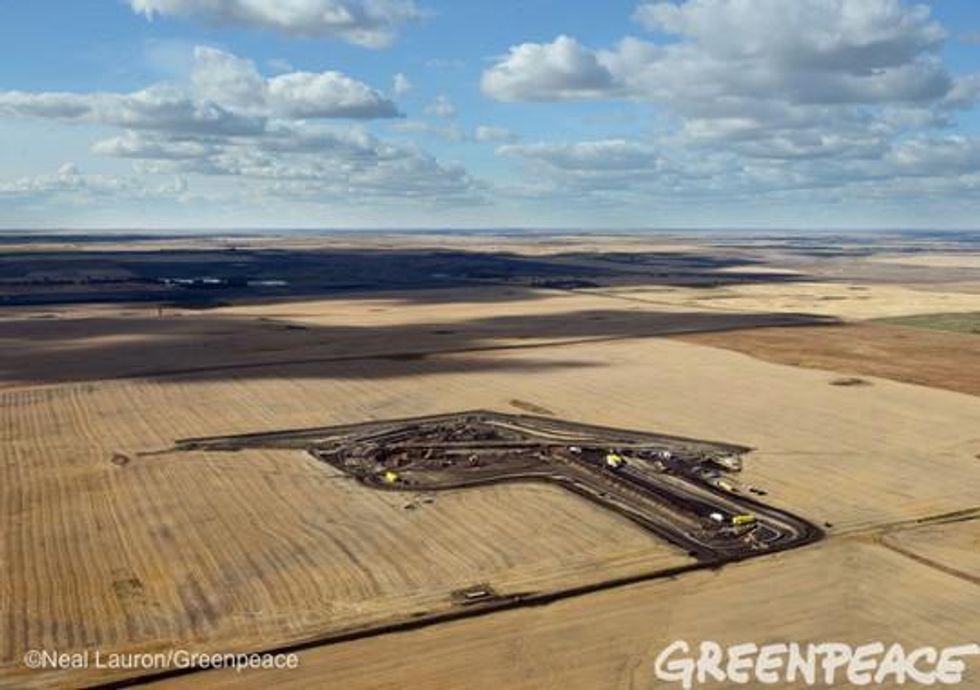
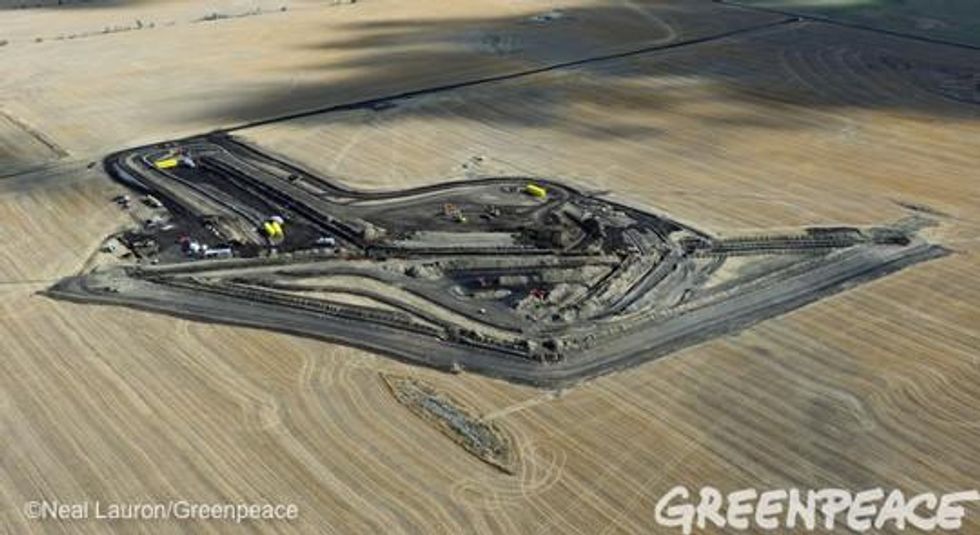
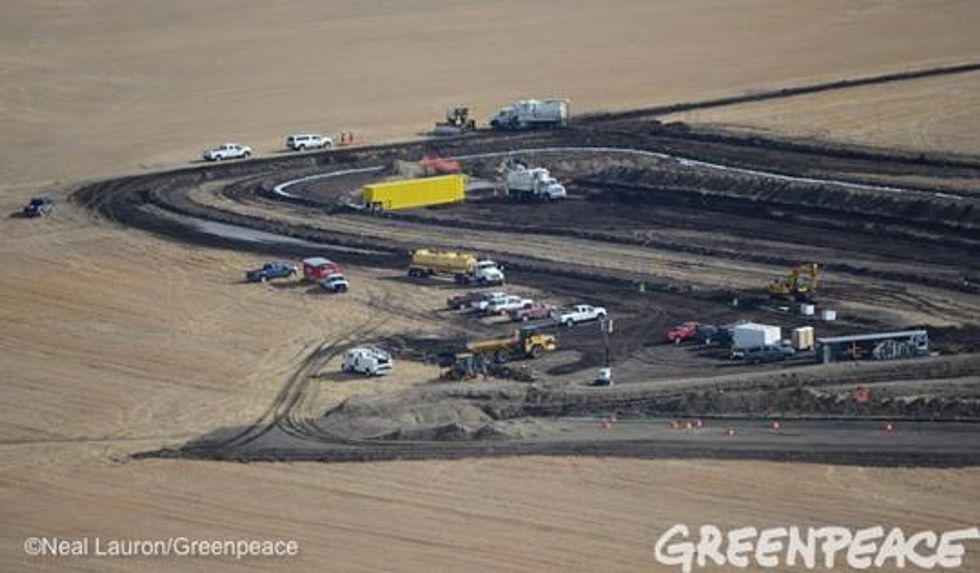
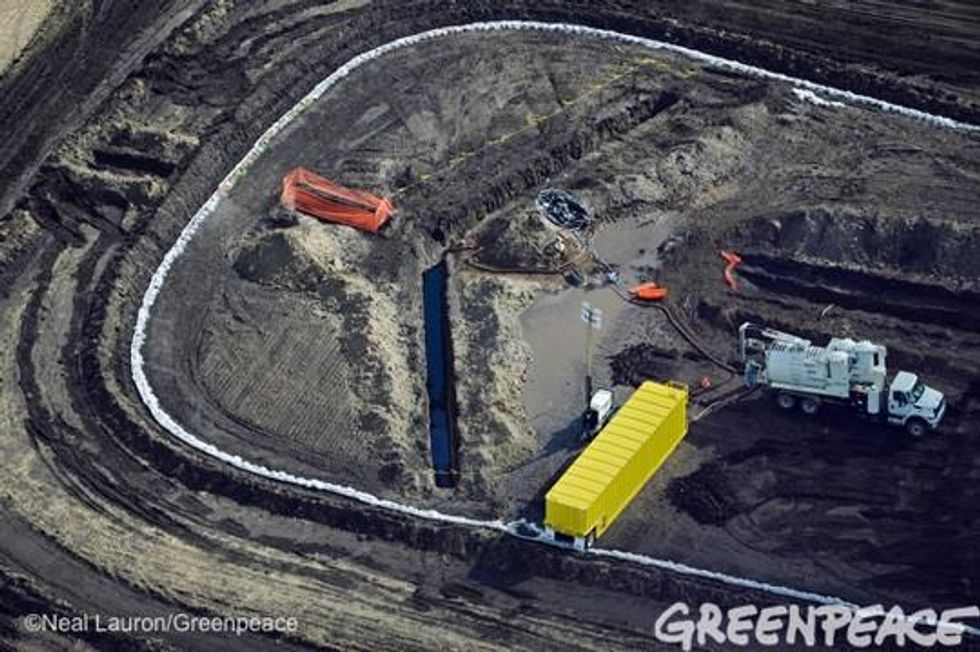
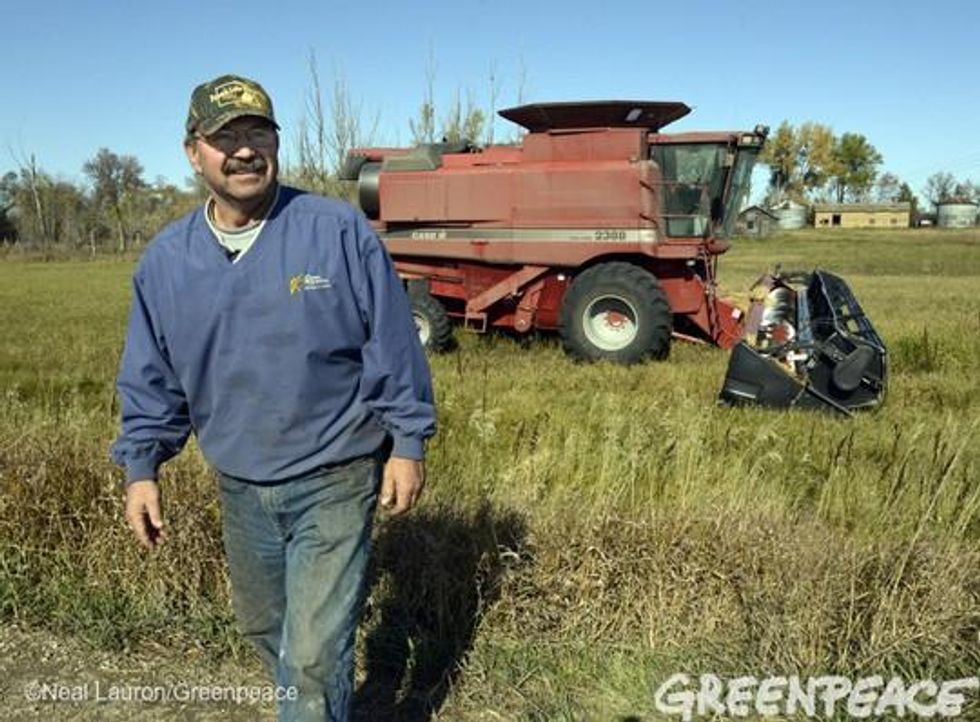
Trump and Musk are on an unconstitutional rampage, aiming for virtually every corner of the federal government. These two right-wing billionaires are targeting nurses, scientists, teachers, daycare providers, judges, veterans, air traffic controllers, and nuclear safety inspectors. No one is safe. The food stamps program, Social Security, Medicare, and Medicaid are next. It’s an unprecedented disaster and a five-alarm fire, but there will be a reckoning. The people did not vote for this. The American people do not want this dystopian hellscape that hides behind claims of “efficiency.” Still, in reality, it is all a giveaway to corporate interests and the libertarian dreams of far-right oligarchs like Musk. Common Dreams is playing a vital role by reporting day and night on this orgy of corruption and greed, as well as what everyday people can do to organize and fight back. As a people-powered nonprofit news outlet, we cover issues the corporate media never will, but we can only continue with our readers’ support. |
On September 29th, Steve Jensen, a farmer in northwest North Dakota, discovered crude oil "spewing and bubbling 6 inches high" out on his field while he was harvesting wheat. The spewing oil came from a break in Tesoro Corporation's underground pipeline which carries crude oil from Bakken shale formation (fracking for oil) to Columbus, North Dakota. By the time clean up crews made it out to Jensen's field, over 20,000 barrels of oil had spilled, making this one of the largest spills in state history.
It took nearly two weeks after Jensen first reported the spill for the state to finally make the news public, and as you can see from the exclusive Greenpeace photos below, the damage is extensive.
North Dakota and Bakken have become coveted areas for oil executives bent on getting the most extreme and remote fossil fuels out of the ground now that the "easy" reserves are on the decline. As we saw in Mayflower, Arkansas earlier this year, pipelines spill, and so as long as we let oil companies keep us locked into these forms of extreme fossil fuels, we'll continue to see spills like these.





On September 29th, Steve Jensen, a farmer in northwest North Dakota, discovered crude oil "spewing and bubbling 6 inches high" out on his field while he was harvesting wheat. The spewing oil came from a break in Tesoro Corporation's underground pipeline which carries crude oil from Bakken shale formation (fracking for oil) to Columbus, North Dakota. By the time clean up crews made it out to Jensen's field, over 20,000 barrels of oil had spilled, making this one of the largest spills in state history.
It took nearly two weeks after Jensen first reported the spill for the state to finally make the news public, and as you can see from the exclusive Greenpeace photos below, the damage is extensive.
North Dakota and Bakken have become coveted areas for oil executives bent on getting the most extreme and remote fossil fuels out of the ground now that the "easy" reserves are on the decline. As we saw in Mayflower, Arkansas earlier this year, pipelines spill, and so as long as we let oil companies keep us locked into these forms of extreme fossil fuels, we'll continue to see spills like these.




